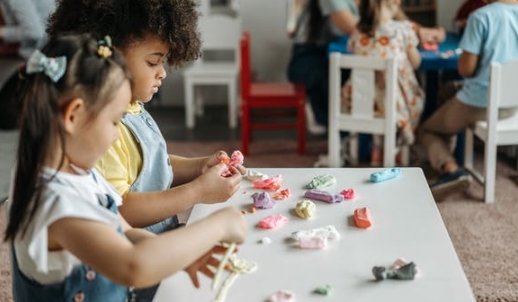Associative play is a crucial aspect of early childhood development that offers numerous benefits for young children. This type of play involves children playing alongside each other, sharing toys and materials, and engaging in simple interactions.
1. Social Development
Associative play helps children develop crucial social skills. By playing with others, children learn how to take turns, share, cooperate, and communicate effectively. These skills are important for building relationships and forming friendships later in life.
2. Cognitive Development
During associative play, children use their imagination and creativity to come up with new games and scenarios. This type of play helps improve cognitive skills such as problem-solving, decision-making, and critical thinking. Children also learn to follow rules and understand cause and effect.
3. Emotional Development
Playing with peers allows children to experience a range of emotions and learn how to regulate them effectively. They learn to empathize with others, manage conflicts, and express their feelings in a healthy way. This helps build emotional resilience and confidence.
4. Language Development
Associative play provides children with opportunities to practice their language skills. They learn new words, improve their vocabulary, and enhance their communication skills through interactions with peers. This lays a strong foundation for language development and literacy skills.
5. Motor Skills
Through interactive play, children develop and improve their gross and fine motor skills. They engage in activities that require physical movement, coordination, and dexterity. This helps strengthen their muscles, improve coordination, and enhance their overall physical development.
In conclusion, associative play plays a vital role in promoting holistic development in young children. By engaging in interactive play with peers, children not only have fun but also learn important skills that will benefit them in various aspects of their lives. Parents and caregivers should encourage and facilitate associative play for optimal growth and development.

